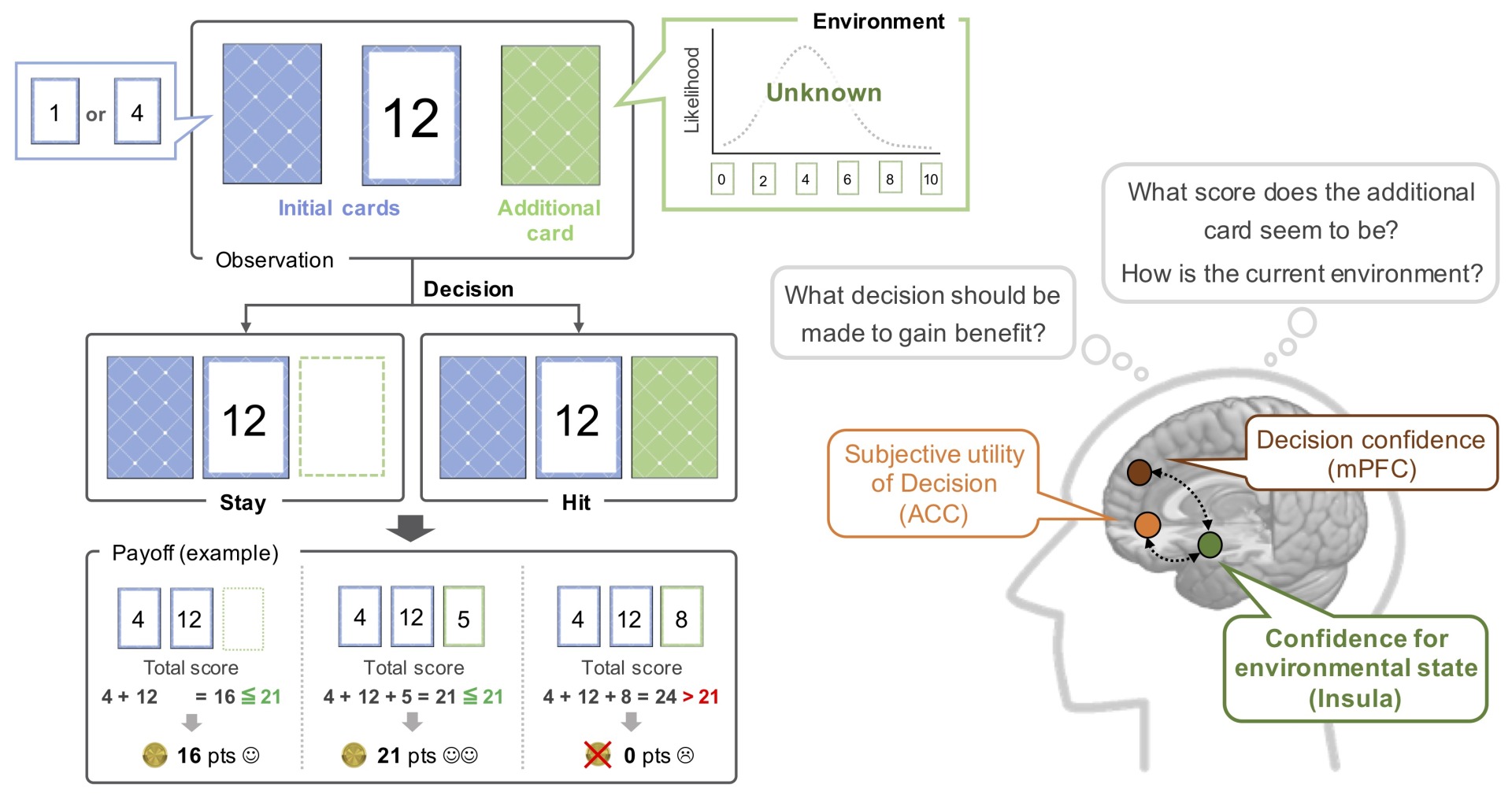To make decisions efficiently in complex environments, our observations need to be supplemented with the prior-level information—environmental states behind the observations. Such environmental states are often hidden and involve some degree of uncertainty. However, how the brain processes uncertain prior-level information to control the cognitive behaviours has not been well elucidated. Here, we designed a “Twenty-one” game task, in which to make better hands whose total score is closer to but not exceeding twenty-one, participants may or may not take a card from the unknown deck-type that is of either of two types of different score distributions. Applying computational modelling to human task behaviours, we observed that the participants adapted their decisions and confidence evaluation depending on the inference of the environmental state, i.e., the deck-type, and the degree of uncertainty for it. Functional magnetic resonance brain imaging revealed that the activity in the left insula was scaled with the confidence level of the deck-type specifically during the decision phase. In addition, the neural representation in this area was functionally coupled with the medial prefrontal cortex that was locally associated with the subjective value belief and the decision confidence. These findings suggested that the prefrontal-insula network supports the modulation of decision-making and related metacognition in terms of the confidence for the prior-level information under this uncertain circumstance.

未知の環境状態に対する推定を内包する意思決定過程とその脳神経基盤の解明は、人間の脳と人工知能を繋いだ協調的制御によるドローンや車両等の安全運転技術、金融市場など不確実性の高い分野での人間の行動予測・ニューロマーケティングなどへの応用可能性が考えられる。
| 氏名 | コース | 研究室 | 役職/学年 |
|---|---|---|---|
| 片山 梨沙 | システム科学コース | 論理生命学研究室 | 博士3回生 |
| 石井 信 | システム科学コース | 論理生命学研究室 | 教授 |